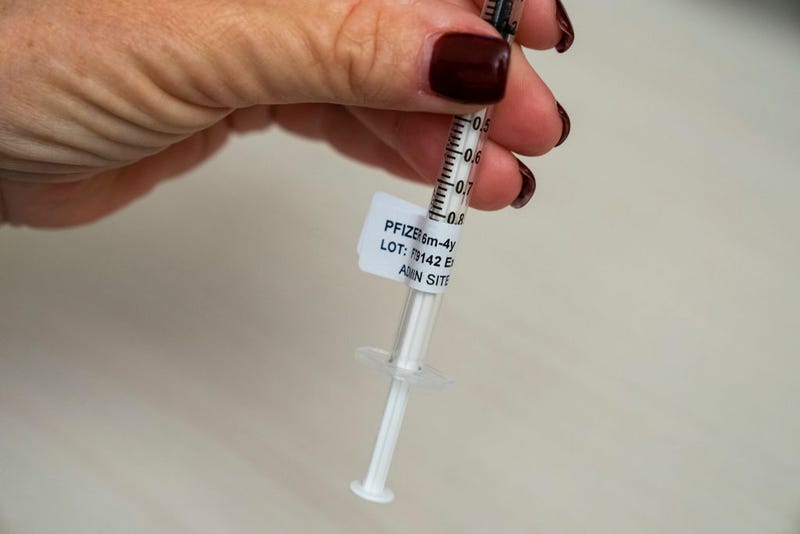
Last month the U.S. Food and Drug Administration finally announced that COVID-19 vaccines were approved for children ages 6 months to 5 years old. However, low demand for the vaccines has some experts worried.
According to a Kaiser Family Foundation survey, fielded before vaccines were recommended for children under age 5, just 18% of parents said they would get their young child vaccinated right away. There are approximately 19 million children under the age of 5 in the U.S., per KFF, and the U.S. Centers for Disease Control and Prevention estimate around 267,000 have received at least one dose of the vaccine.
This week, POLITICO reported that some states where parents have had a history of vaccine hesitation have ordered fewer doses of vaccines for kids.
“Never before have we had a vaccine available for young children that has been in billions of people before it was given to a young child,” said Kawsar Talaat, a vaccine expert at the Johns Hopkins Bloomberg School of Public Health, according to the outlet. “The distrust in government, the distrust in public health and the distrust in science is growing and is very, very worrisome.”
POLITICO contacted all 50 states as well as the District of Columbia and Puerto Rico to ask how many vaccines for young children they ordered and received responses from 38 jurisdictions. Based on this data, “several of the states that reported placing some of the lowest orders relative to their under-5 populations also have low COVID-19 vaccination rates for 5- to 11-year-olds.”
Examples listed by the outlet include:
· Alabama, where 16% of 5- to 11-year-olds received at least one vaccine dose and vaccine doses ordered for younger children would cover around 13% of its under-5 population with a single dose.
· Mississippi, where a little more than 16% of 5- to 11-year-olds received at least one vaccine dose and vaccine doses ordered for younger children would cover around 16% of its under-5 population with a single dose.
· Oklahoma, where more than 20% of 5- to 11-year-olds received at least one vaccine dose and vaccine doses ordered for younger children would cover around 19% of its under-5 population with a single dose.
· Florida, where 24% of 5- to 11-year-olds are vaccinated and no vaccines were ordered for younger children
According to POLITICO, Florida is the only state to explicitly advise against COVID-19 vaccines for young children, in opposition to CDC recommendations. While Florida permits practitioners and health systems to order the shots through a state portal, it is not making the vaccines available in state-run health programs.
“You’re not allowing parents to choose,” Lisa Gwynn, a pediatrician and president of the Florida chapter of the American Academy of Pediatrics, said of the state’s decision. “You’re cutting off supply.”
Buddy Creech, a pediatric infectious disease specialist and the principal investigator for Moderna’s pediatric studies, is another concerned expert. He said that the omicron BA.5 subvariant of SARS CoV-2 is causing a surge in cases that are particularly dangerous for unvaccinated people.
“We see more children dying of COVID than in our worst flu year and we don’t know how to predict which kids that’s happening to,” he explained.
“I’m not so worried we’re going to get overrun like January 2022,” said Jason Newland, a Washington University infectious disease physician at St. Louis Children’s Hospital, of the current COVID-19 landscape. “Am I worried there are going to be a lot of people with severe disease? Yes … We need to keep pushing to get more people vaccinated.”
While a seemingly small percentage of younger children have been vaccinated so far, a CDC spokesperson said summer holidays may have impacted the vaccine rollout and that it might be too early to judge vaccination rates for this age group.
Moderna and Pfizer-BioNTech mRNA COVID-19 vaccines are available for younger children as families prepare for the 2022-2023 school year.


